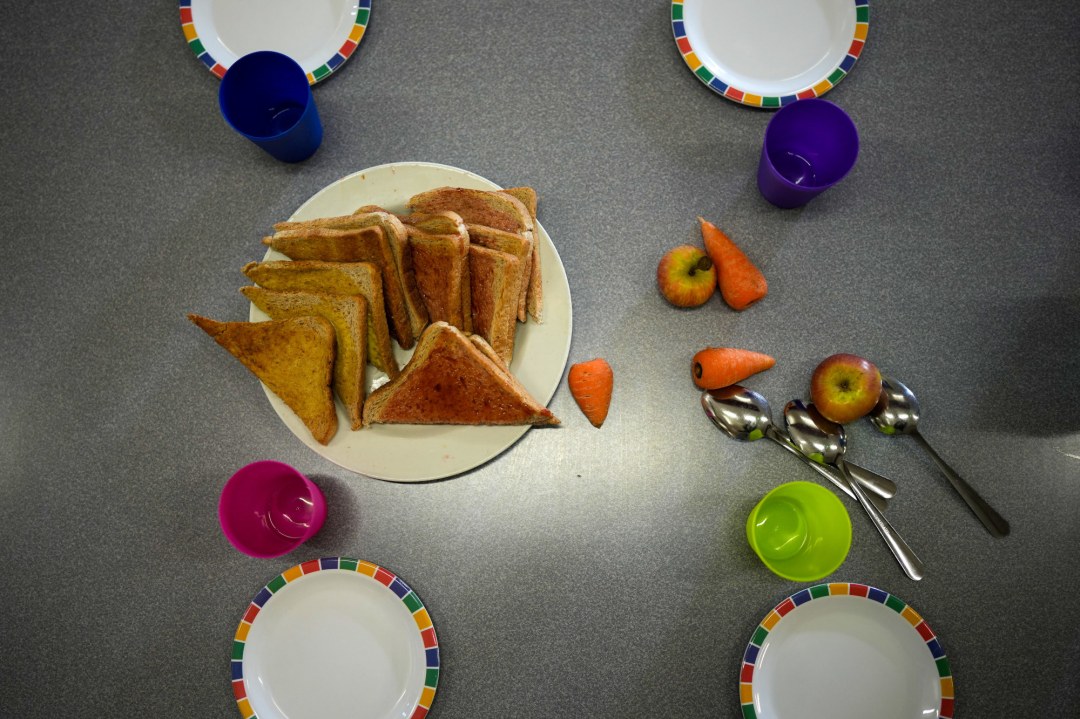This week the government has started rolling out their free breakfast club scheme, which will be trialled in 750 primary schools until July. The initiative – which, as many are quick to point out, is not actually free but funded by the taxpayer – will cost around £30 million. However, many headteachers have warned of a funding shortfall as the basic rate is just 60p per meal per day (with an additional 78p per pupil per day added based on the proportion of free school meal pupils at the school).
When I first heard about the proposal in Labour’s manifesto, I did my usual teacher eye-roll. I thought: here is yet another abdication of parental responsibility, yet another demand placed on overburdened schools, yet another example of state overreach. My cynicism comes from having worked at both ends of the social spectrum. I have taught at a state secondary school where pupils come into school hungry and tired, or hyped-up from a morning can of Monster and a chocolate bar, only to crash by 10 o’clock. I have also taught at a state secondary school full of very privileged children, where the average house price in the immediate vicinity is over £900,000. I understand why people think it’s unfair that they should have to pay to feed these more affluent pupils, and think that, at the very least, the breakfast clubs should be means-tested.
However, as risky as it may be to admit this as an opinion writer, I have changed my mind. Of course, these breakfast clubs are about money: the number of children in poverty has soared by 700,000 since 2010, and a record 4.3 million children are now raised in a low-income family. Since last year there are 300,000 more children in households reliant on food banks, and over a quarter of primary school teachers say they have personally purchased food for hungry children. Hunger robs children of their energy, focus and ambition. Hungry children are also a health crisis: last year, nearly half of school nurses said they dealt with children suffering due to a lack of healthy food on a daily or weekly basis, and, after an extended period of austerity, British five-year-olds are now shorter compared with their European peers.
Yet these clubs are also about something else: time. These breakfast clubs will save working parents around 95 hours a year, or £750 annually in childcare. Two-thirds of parents use before or after school childcare at least once a week, and due to difficulties providing for these wraparound hours, a third of parents are forced to reduce their working hours as a result. Seventy-four per cent of women say their career advancement or pay has suffered as a result of having to manage childcare with work, and the Centre for Progressive Policy reports that 1.7 million women want to do more paid work but can’t due to childcare issues. The problem is particularly acute in Britain: we have the longest working commutes in Europe, but also a relatively short school day.
An extra 30 minutes a day may not seem transformative, but for working parents who are penalised at every turn, every little helps. I am currently on maternity leave, but when I return to work in September as a teacher my husband (who is self-employed, and therefore has more flexibility) will have to do every drop-off, as I could not find a childminder or nursery with spaces available before 8.30 a.m. Some may argue that going back to work is a choice, but that is not the reality for the vast majority of parents, who cannot afford the ever-rising costs of rent, mortgages and utility bills on a single salary; one survey found that 77 per cent of first-time mothers return to work primarily due to household cost rather than because they miss working.
Labour should sell the scheme as an investment rather than a handout. Free breakfast clubs not only have a social benefit – helping children concentrate, closing the attainment gap, encouraging children to attend school in the first place – but an economic one. Time equals money: working hours lost to childcare are worth around £23 billion a year, and with a record-low birthrate, any scheme that helps families is worth exploring.
Time will tell exactly how sustainable or successful these breakfast clubs are, but it would be wrong to assume that they are just about schools doing the job of irresponsible parents who are too feckless to feed their children a piece of toast in the morning. It’s about helping the majority of families. Since 2020, the most common household arrangement has been both parents working full-time, and these clubs could give exhausted parents some much needed breathing space whilst trying to juggle careers and childcare. Until organisations can guarantee more family-friendly, flexible working practices, this may be our best option instead.








Comments